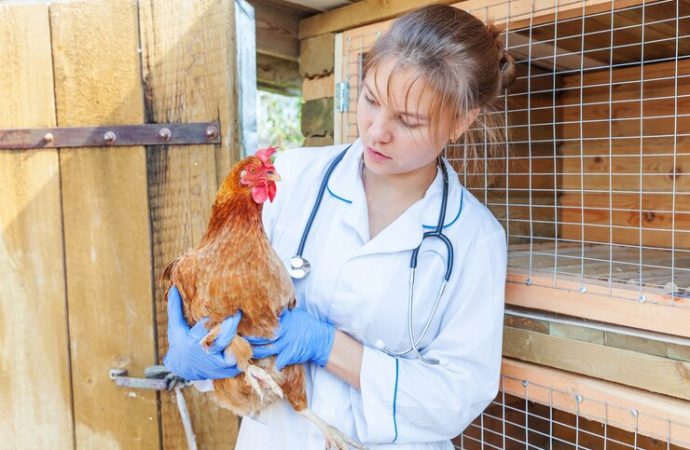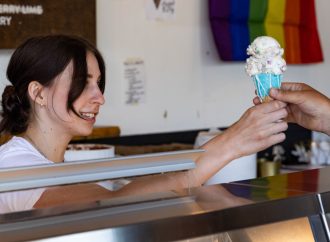Are you a poultry farmer? If so, the U.S. government has recently issued a recommendation for your operation: consider vaccination. As avian influenza continues to spread worldwide, it’s more important than ever to protect our flocks and prevent devastating economic losses. But what does this mean for you as a farmer? In this blog post,
Are you a poultry farmer? If so, the U.S. government has recently issued a recommendation for your operation: consider vaccination. As avian influenza continues to spread worldwide, it’s more important than ever to protect our flocks and prevent devastating economic losses. But what does this mean for you as a farmer? In this blog post, we’ll explore why the U.S. government is urging poultry farmers to consider vaccination and what steps you can take to keep your birds healthy and thriving in these uncertain times. So let’s dive in!
Outbreaks of Avian Influenza
The US government is urging poultry farmers to consider vaccination as a means of protecting their flocks from avian influenza (AI). AI is a highly contagious viral disease that can affect all birds, including chickens, turkeys, and ducks. The virus can cause severe respiratory illness in birds and can be deadly. Infected birds can spread the virus to other birds through direct contact or through the environment, such as contaminated water or soil.
Outbreaks of AI have occurred in various parts of the world, including Europe and Asia. In 2015, an outbreak of highly pathogenic AI occurred in the United States, resulting in the death or culling of more than 48 million chickens and turkeys. The US Department of Agriculture (USDA) has since implemented a number of measures to prevent future outbreaks, including mandatory reporting of suspected cases, quarantine of affected premises, and enhanced biosecurity measures.
Vaccination is one of the most effective ways to prevent AI and control its spread. The USDA recommends that poultry farmers consider vaccination as part of their flock-protection plan. Vaccination does not guarantee immunity from AI, but it can greatly reduce the severity of the disease and help control its spread. There are two types of AI vaccines available in the United States: killed viruses (KV) and live attenuated viruses (LA). KV vaccines are typically used for commercial poultry operations, while LA vaccines are more commonly used for backyard flocks.
The Government’s Recommendation for Vaccination
The United States Department of Agriculture’s (USDA) Animal and Plant Health Inspection Service (APHIS) is urging poultry owners and producers to consider vaccination as a key component of their flock health management programs. This follows a recent increase in the number of outbreaks of highly pathogenic avian influenza (HPAI) in commercial poultry flocks in the United States.
Vaccination can play an important role in protecting flocks from HPAI, as well as other diseases. In addition to reducing the impact of disease on animal welfare, vaccination can also help protect the economic viability of poultry operations by reducing losses due to sickness and death.
The USDA recommends that poultry owners and producers consult with their veterinarians to develop a comprehensive flock health plan that includes vaccination. Vaccination programs should be tailored to the specific needs of each operation, taking into account factors such as the type of poultry being raised, the geographical location of the farm, and the risk of exposure to HPAI.
How Vaccination Works
When a poultry farmer decides to vaccinate their flock, they are protecting their chickens from deadly diseases. But how does vaccination work?
Vaccination works by injecting a chicken with a “dead” or “modified live” virus. The dead virus cannot replicate inside the chicken, but it can still stimulate the chicken’s immune system to produce antibodies. These antibodies will then protect the chicken if it is ever exposed to the live, virulent form of the virus.
The modified live virus used in vaccines is attenuated, meaning that it has been weakened so that it cannot cause disease in chickens. However, this weakened virus can still replicate inside the chicken long enough to stimulate its immune system and produce antibodies.
Most poultry farmers choose to vaccinate their flocks with a combination vaccine that offers protection against multiple diseases. These combination vaccines are usually given as an injection or in the water supply. Some common poultry diseases that are vaccinated against include Newcastle Disease, Infectious Bronchitis, and Avian Influenza.
Why Some Farmers are hesitant to Vaccinate
The U.S. government is urging poultry farmers to vaccinate their chickens and turkeys against a deadly strain of bird flu, but some farmers are hesitant to do so.
They worry that the vaccines may not be effective and that they could end up with sick birds. They also worry about the cost of the vaccine and the potential for side effects.
Some farmers have already lost thousands of dollars worth of birds to bird flu, and they don’t want to take any chances.
The Bottom Line
The U.S. government is urging poultry farmers to consider vaccination as a way to combat the spread of bird flu. Vaccination can help prevent the disease from spreading and protect flocks from infection. However, there are some drawbacks to vaccination, including the potential for the virus to mutate and become more resistant to vaccines.





















Leave a Comment
Your email address will not be published. Required fields are marked with *